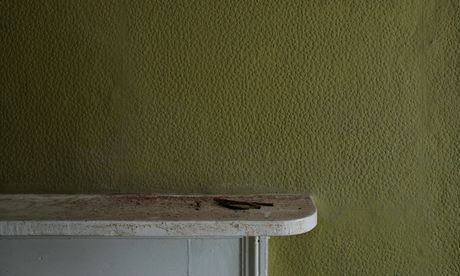Itself familiar from many anthologies, this sad and sweet descant on emotional losses has a singular magic

Blank verse … part of the Artangel installation Yes, These Eyes Have Windows by Saskia Olde Wolbers, running until 22 June 2014 at 87 Hackford Road, London SW9, the now-vacant house where Vincent Van Gogh lived 1873-1874. Photograph: Martin Godwin for the Guardian
I've often wondered how Charles Lamb came up with the form of this week's anthology favourite, The Old Familiar Faces. It's a rare anthologist who includes any other of Lamb's poems, in fact. The poem seems to be a one-off, an unusually-shaped but fully-formed parlour piece among the more fine-grained ornaments of the better-known Romantic poets – several of whom, incidentally, were among Charles Lamb's closest friends. But can the poem be without any ancestors?
The chance discovery of a short article written by Duncan Wu for the Charles Lamb Society offered a surprising answer: the blank verse of the Elizabethan playwright, Philip Massinger. Perhaps it shouldn't have been a surprise: Lamb, after all, was a devoted student and populariser of Shakespeare's minor contemporaries. I followed the trail and, rewardingly enough, found Lamb had enthusiastically quoted Massinger's play A Very Woman in a letter to Samuel Taylor Coleridge (June 13 1796), particularly noticing "the fine effect of his double endings".
More
The chance discovery of a short article written by Duncan Wu for the Charles Lamb Society offered a surprising answer: the blank verse of the Elizabethan playwright, Philip Massinger. Perhaps it shouldn't have been a surprise: Lamb, after all, was a devoted student and populariser of Shakespeare's minor contemporaries. I followed the trail and, rewardingly enough, found Lamb had enthusiastically quoted Massinger's play A Very Woman in a letter to Samuel Taylor Coleridge (June 13 1796), particularly noticing "the fine effect of his double endings".
More
No comments:
Post a Comment